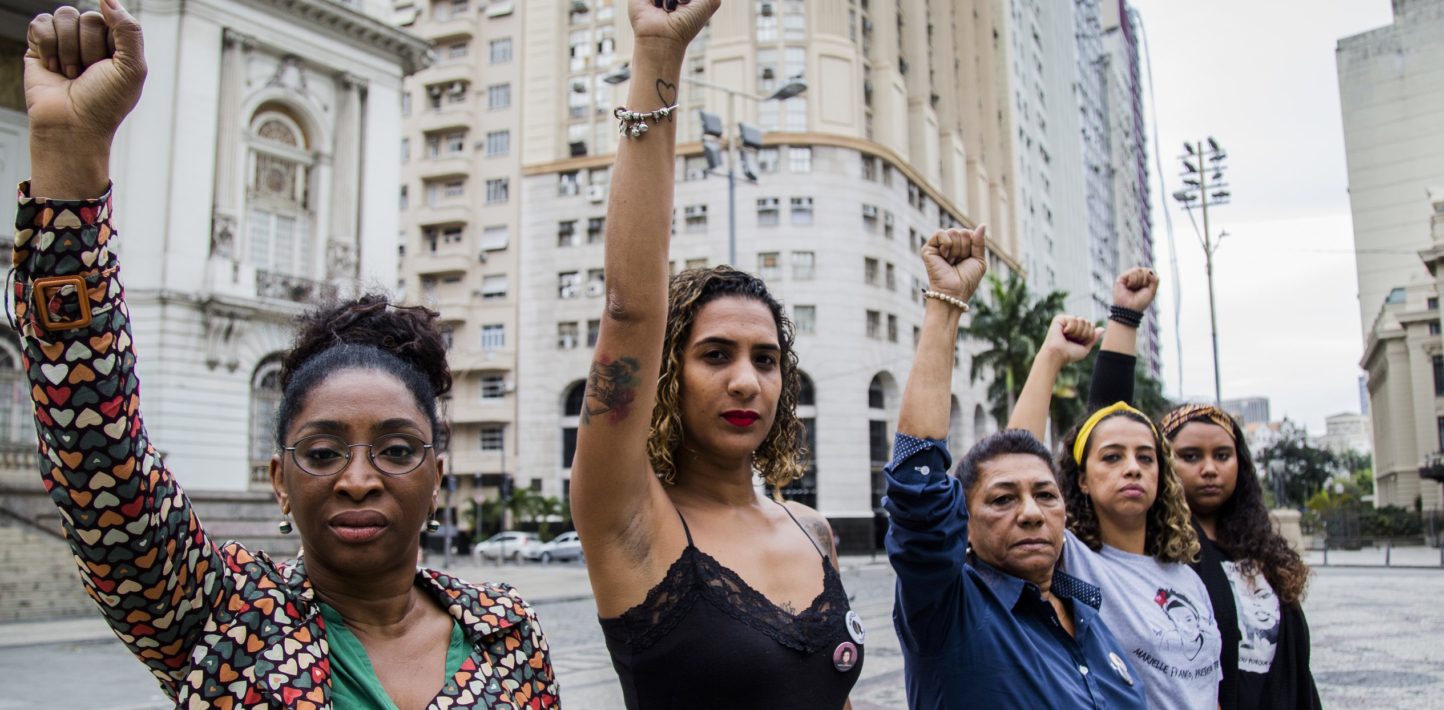The Brazilian authorities’ failure to identify all those responsible for the killing of human rights defender Marielle Franco, six months after she was brutally shot dead, raises concerns about their commitment to deliver justice for this atrocious crime and ensure a safe environment for human rights defenders in the country, Amnesty International said today.
Marielle Franco and her driver Anderson Gomes were killed in their car in Rio de Janeiro on 14 March. She was shot in the head four times. Media reports suggest that the killing was carefully planned, believed to have involved agents of the state and the security forces.
“Today sadly marks the six-month anniversary of Marielle’s killing. It also marks the continuing inability and apparent unwillingness of the authorities to properly investigate the case. It is completely unacceptable that half a year has gone by and we are no closer to knowing who is responsible for Marielle and Anderson’s senseless deaths,” said Jurema Werneck, Executive Director of Amnesty International Brazil.
“Impunity cannot be an option for the authorities. Brazil’s federal and state authorities and its criminal justice system all have an obligation to ensure a thorough, independent and impartial investigation into these appalling murders.”
Following pressure from Amnesty International and other civil society organizations, Brazil’s Public Prosecution Service announced in August that specialist investigators had been enlisted to work on Marielle’s case with a new team from the Special Group on Organized Crime (GAECO) taking over the investigation in September.
Impunity cannot be an option for the authorities. Brazil’s federal and state authorities and its criminal justice system all have an obligation to ensure a thorough, independent and impartial investigation into these appalling murders
Jurema Werneck, Executive Director of Amnesty International Brazil
Amnesty International said this was a step in the right direction but also called on the authorities to involve the Special Public Security Action Group (GAESP) in the investigation. This specialized unit is tasked with investigating police abuses and making sure the civil police force conducts professional investigations.
“In addition, a group made up of experts, lawyers and other specialists, that is totally independent of the state must be set up to oversee the investigation and ensure that due process is followed,” said Jurema Werneck.
In a meeting with Marielle’s relatives and Amnesty International on 20 August, Brazil’s Secretary of State for Security, Richard Nunes, said he supported the proposed initiative to allow for an independent group to monitor any undue influence or negligence in the investigation.
The authorities have yet to verify media reports that security cameras aimed at the scene of the crime were turned off on the eve of the shooting, and that the bullets fired were part of a batch sold to Brazil’s federal police. Other unanswered questions as part of the investigation include whether the weapon used to kill Marielle and Anderson was a submachine gun of exclusive use by security forces. Weapons of the same model had been reported missing from the civil police’s arsenal.
According to media reports, the manner in which the killings were carried out and the precision of the shots fired suggest that some of the perpetrators may have had specialized training.
With each passing day, international recognition of the example set by my daughter is growing and is being transformed into a fight for justice, to hold the Brazilian state to account
Marinete da Silva, Marielle Franco’s mother
“There may be a powerful group behind Marielle’s killing that thinks it can act with impunity. The authorities must prove them wrong and ensure everyone involved in this crime is brought to justice in a fair trial,” said Jurema Werneck.
Marielle Franco’s dedication to human rights
Born and raised in Rio’s Maré favela, Marielle was a sociologist with a master’s degree in public administration, who began working in human rights in 2000 after a friend was killed in a shootout in their neighbourhood.
For more than a decade, Marielle worked to defend the human rights of young black people, women, favela residents and LGBTI people. She also spoke out about extrajudicial executions and other human rights violations committed by police officers and other state agents.
Shortly before she was killed, Marielle, who was also a Rio de Janeiro city councillor, had been named the rapporteur on the city council commission to monitor the federal intervention into Rio’s public security.
“With each passing day, international recognition of the example set by my daughter is growing and is being transformed into a fight for justice, to hold the Brazilian state to account,” said Marinete da Silva, Marielle Franco’s mother.
“Marielle was a natural leader. Whenever she took part in a project, it was always with the aim of helping others, believing that collective organization based on solidarity could change the world. Doing things for others made her feel good. My family will not rest until we have answers about the reasons for this crime,” Marinete da Silva said.
In 2016 alone, 66 human rights defenders were reportedly killed in Brazil. Yet most killings of human rights activists are not investigated and rarely is anyone held accountable.
“The killing of a human rights defender is an attempt to intimidate and silence not just the activist but all of society. It’s an attack on human rights. The Brazilian authorities must do everything in their power to protect those who speak out against injustice and ensure they can work without fear of reprisals,” Jurema Werneck said.
For more information or to request an interview, contact Andrea Florence: +55 219 7133 0505, [email protected]


